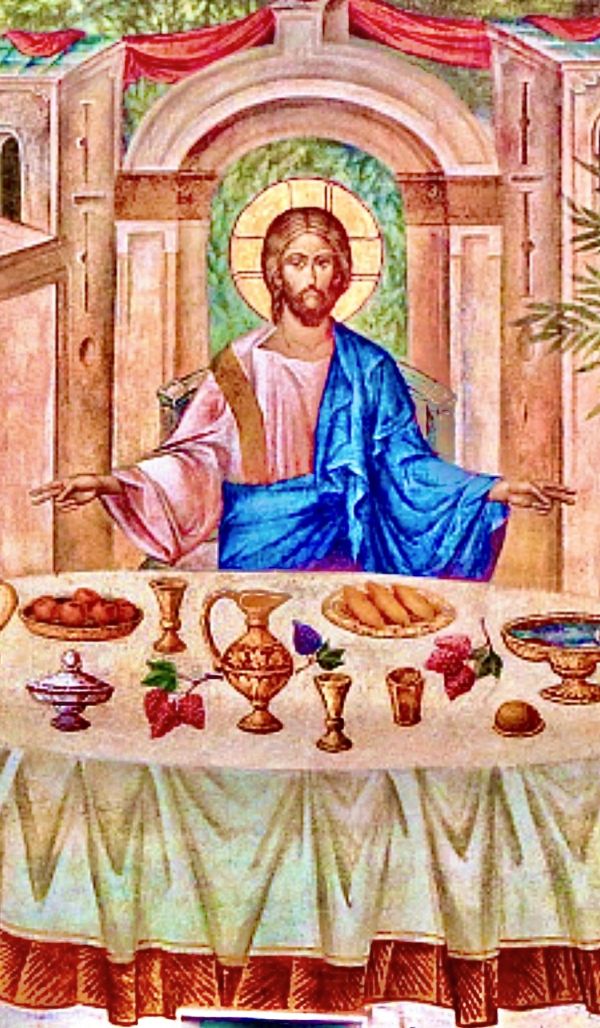Incarnation, or the spiritual module without humanity
(Mk 2:23-28)
On the way of conversion, conflicts of conscience are not parentheses or accidents of the path, but crucial nodes.
The genuineness of believing then generates implicative force and new expressive abilities.
According to ordinary religious evaluations, the legislation was worth more than hunger...
To be honest, the observance of the Sabbath had become a central law not because of theological subtleties, but because in the period of the Exile the weekly rest had allowed to gather, share hopes, encourage each other, maintain the identity of the people.
But legalism ended up stifling the spirit of the day of worship, once a sign of a freedom at the service of faith and man, both of which cannot be enslaved.
Thus where Jesus arrives, every empty spiritual module of humanity crumbles, and the Incarnation takes hold: the place where God and man seriously ‘rest’ [other than the saturday!].
In the parallel passage of Mt (12:1-8), Jesus' response is more articulated and complete:
On Jewish Sabbath, priests had many more sacred and preparation engagements, slaughter and reordering of the Sanctuary, than the other days of the week, and the Torah obliged them... it happens to us too.
Again in Mt, the Lord quotes a famous phrase from the prophet Hosea - a man of raw experience, but who well defines the peak of intimacy with God: an authentic rite is to realize the hopes of our neighbour and to have the heart in the needs of others.
Christ emphasizes the poverty of every legalistic and hypocritical attachment in the mode of conceiving relations with the Father.
The sign of the Covenant with God, and Encounter (authentic sanctification) is adherence that continues in the plot of the days and in his active Person - not a ridiculous idolatry of observances or cultic parentheses.
Facts and rites celebrate love; and the sincere fulfilment does not follow the pedantic "as we should be", but expresses a Liberation of the person.
The biblical episode that Jesus quotes could perhaps appear not entirely pertinent to the theoretical question: his disciples did not seem to be kings or even priests.
Instead, in the new time that’s urgent, yes: ‘sovereigns’ of one’s life by Gift and Call, as well as ‘mediators’ [of divine blessings on humanity] - and also Prophets.
The lovable God establishes with us a dialogue and a friendship that invites, gives impetus, transmits taste for doing.
It’s the result of a messianic conscience as «Son of man» (v.28): transmissible to us, his brothers and friends - very united to him by Faith.
For this reason [after the call of the disciples and the first healings, then the vocation of Levi and the controversy about fasting] the Lord presents himself to the Pharisees in the royal stunt double of David, who is about to conquer the ‘kingdom’ even with a small handful of followers.
In the time of the global crisis that affects the future (and still tries to calculate it by directing it a priori, according to selective interests) the challenge is more open than ever.
To internalize and live the message:
How did you perceive that you were reliving Christ in the fluency of the norms?
[Tuesday 2nd wk. in O.T. January 21, 2025]












